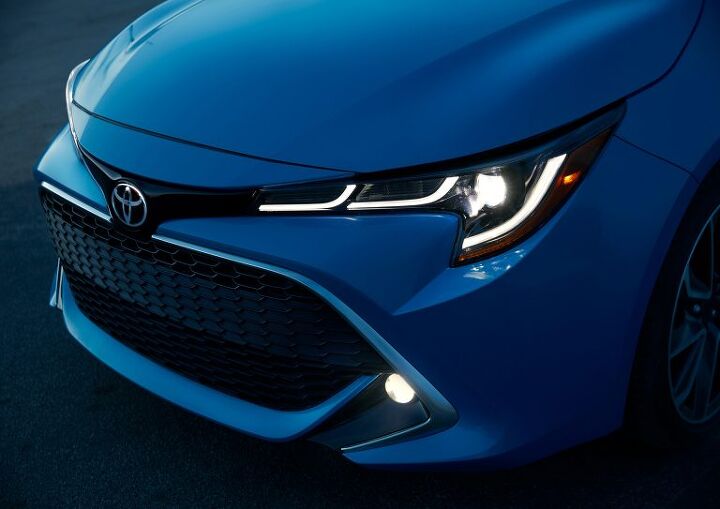#AutomotiveData
Toyota's Doing Mobility Stuff – Some a Little Creepy, Rest Kind of Fun
When an automaker discusses mobility, they’re not really talking about anything specific. The term has been established within the industry as a catch-all phrase for electrification, app-based services, autonomous programs, data acquisition, robotics, and whatever other ideas that don’t fit neatly within a company’s core product line. Providing the best example of the term’s nebulous nature this week was Toyota, which showcased a glut of mobility projects for the 2020 Olympic and Paralympic Games — as well as toying with the idea of handing over vehicle data to the Japanese government.
Let’s start with the concerning aspects before we get into the goofy stuff.
Driving Dystopias: China Doesn't Sound Terribly Fun
With China having become the world’s largest automotive market by individual sales, it’s worth keeping tabs on it for burgeoning driving trends. While that’s predominantly revolved around electric vehicles, the People’s Republic also has pretty strict driving rules backed by some of the tightest monitoring of a civilian population imaginable. China is setting up a vast surveillance system that tracks every single one of its 1.4 billion citizens and is adapting it for use in its new “social credit system,” which sounds like the most Orwellian thing in existence.
The system is intended to publicly shame criminals, debtors, jaywalkers, and those with “controversial” political views while monitoring their every move but it’s also doing a fine job of making life harder for drivers.
Automakers Helping China Spy on Drivers: Report
As concerns grow about the Chinese government’s technology-driven “social credit” system of controlling its citizens, the Associated Press reports that the country, through regulations for electric vehicles, is requiring global automakers to supply telemetric data from their vehicles that could help the one-party state spy on its people.
American, German, and Japanese automakers, including General Motors, Ford, Tesla, Daimler, BMW, Nissan, and Mitsubishi, are among 200 manufacturers whose products must transmit location information and dozens of other pieces of driving data in real time that ultimately end up in monitoring centers that can report that data to the Chinese government.
Which Segments Incur the Largest (or Smallest) Insurance Losses?
Insurance may be one of the greatest scams ever pulled on the general public, but it’s a very necessary evil. Right around the time the automobile became popular, people starting crashing them into things. By the 1920s, individual states began requiring drivers to purchase insurance — creating a pooled solution that covered at-fault drivers for damages they might be unable to pay otherwise.
However, not all drivers crash and not all vehicles incur the same costs when they take or deliver a beating. Collision losses might be astronomical for high-end sports cars but comparably moderate for midsize pickup trucks. The Insurance Institute for Highway Safety and Highway Loss Data Institute recently compiled the loss averages for hundreds of models, grouping them by segments, to establish how lightly-used autos stack up against each other.



















Recent Comments